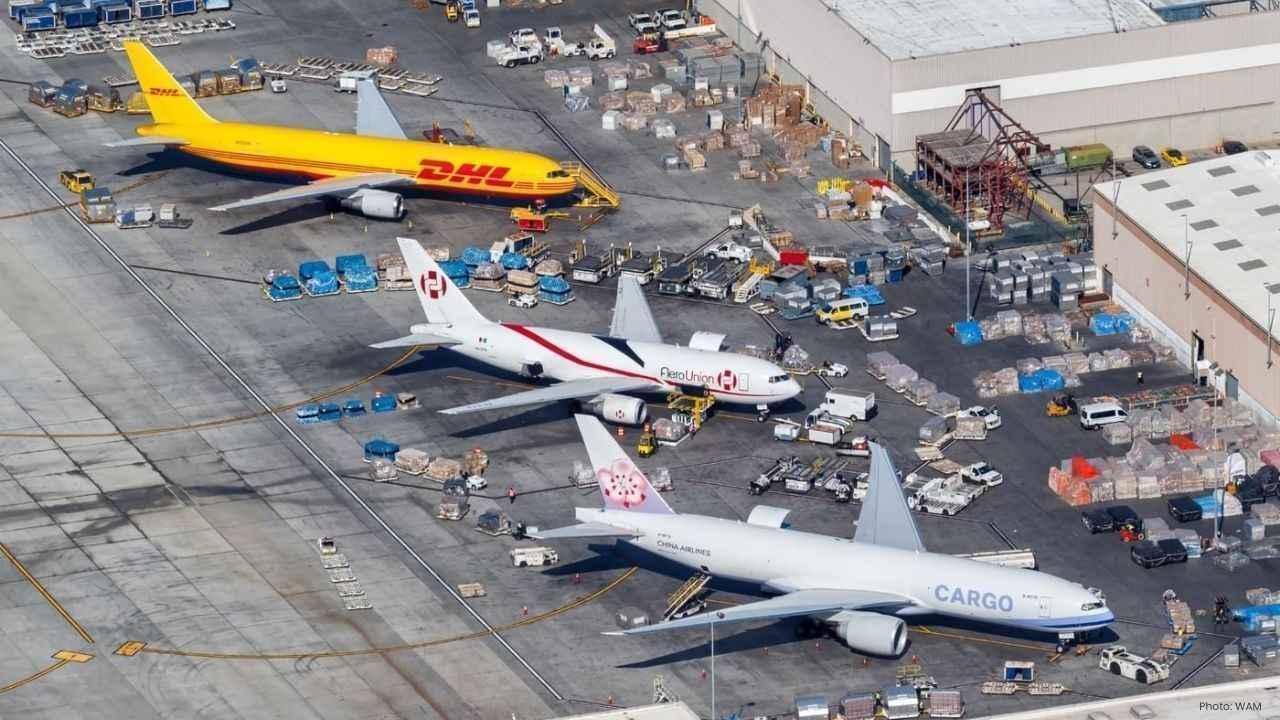
Post by : Mumtaaz Qadiri
Twenty-five countries have stopped sending postal packages to the United States. This decision is connected to new rules announced by the U.S. government regarding customs taxes. These countries are worried about changes to the “de minimis” exemption, which allowed small packages worth less than $800 to enter the U.S. without paying customs duties. The U.S. has decided to remove this exemption starting August 29, 2025, which has caused confusion and concern among postal services and businesses around the world.
What Was the De Minimis Exemption?
The “de minimis” exemption was a policy that allowed small international shipments to enter the United States duty-free. This exemption was in place for many years and applied to goods under $800 in value. Its purpose was to make it easier for people and businesses to send low-cost goods across borders. Many online shoppers and e-commerce sellers relied on this rule to ship items without adding extra costs for customs duties. Removing this exemption means that all international packages, even small ones, may now face taxes when entering the U.S.
Countries Affected by the Suspension
The countries that suspended postal services include major economies and trading partners of the United States, such as the United Kingdom, France, Germany, Italy, Japan, India, Australia, and New Zealand. In total, 25 countries have paused shipments, waiting for clarification about how the new customs tax rules will be applied. While personal letters and very small items may still be allowed, commercial packages and e-commerce shipments are largely affected. This pause is expected to disrupt international trade and delay deliveries.
Impact on International Trade
The suspension of postal services is creating major problems for trade. Businesses that sell products to the U.S., including small online shops, now face uncertainty. The removal of the de minimis exemption means that customs duties could be applied to packages valued even under $800. This may increase costs for sellers and buyers. Shipping fees are expected to rise, and some companies may have to reconsider sending goods to the U.S. This could have long-term effects on international trade relationships.
Impact on E-Commerce Businesses
Online shopping platforms are particularly affected by this change. Companies such as Etsy, DHL, and other international delivery services have already taken steps to suspend shipments to the U.S. until they can understand the new regulations. Many small businesses that depend on international orders may struggle to reach U.S. customers. Some may need to find alternative ways to ship goods or increase prices to cover the new customs costs. This may make goods more expensive and reduce sales for sellers who previously benefited from the exemption.
Reactions from Postal Services
Postal companies have expressed concern about the new U.S. rules. They are unsure how to handle customs duties and the paperwork needed for each shipment. Major carriers like DHL, FedEx, and national postal services have suspended some international services to avoid legal problems and financial loss. They need clear instructions from the U.S. government to resume normal operations. Until then, postal delays and package suspensions may continue, causing inconvenience to customers worldwide.
Challenges for Small Businesses
Small businesses are the hardest hit by this change. Many of them rely on affordable shipping to compete in the U.S. market. With new customs duties, shipping costs could rise significantly. This may force some small sellers to reduce the number of products they ship or stop exporting to the U.S. altogether. Businesses are exploring options such as setting up distribution centers in the United States or partnering with local logistics companies to reduce costs. However, these solutions require extra investment and planning.
Role of the Universal Postal Union
The Universal Postal Union (UPU), a United Nations agency, oversees international postal regulations. The UPU is concerned about the suspension of postal services to the U.S. and is working with member countries to find solutions. The agency emphasizes the importance of smooth global postal operations. By coordinating between countries and sharing information, the UPU hopes to minimize disruptions and provide guidance on customs and duties.
Economic and Consumer Implications
The suspension of postal services may also affect U.S. consumers. People who order goods from other countries may experience delays or higher shipping costs. Some items may become unavailable, especially specialty products or small goods often shipped from abroad. Businesses that sell to U.S. customers will face increased expenses, and these costs may be passed on to consumers. Overall, international trade and e-commerce could face challenges until the new customs rules are clearly implemented.
Potential Solutions and Future Steps
Countries and businesses are seeking solutions to the new rules. Some potential measures include better customs reporting systems, pre-paid duties, and clearer guidelines from U.S. authorities. Postal services may also work with international partners to establish new processes for shipments. Businesses may need to adjust their logistics, including alternative routes or using U.S.-based fulfillment centers. Cooperation between governments, postal unions, and companies will be necessary to prevent long-term disruptions in trade.
Global Trade at a Crossroads
The suspension of postal services to the U.S. highlights the impact of changes in trade policy on global commerce. The removal of the de minimis exemption affects both businesses and consumers. Postal services, e-commerce platforms, and small sellers must adapt quickly to avoid losses. International coordination and clear communication from the U.S. government will be essential. While challenges remain, stakeholders are actively seeking solutions to ensure that international trade continues smoothly.
US postal suspension, international shipping rules










NMDC Group And ADNOC L&S Sign Three-Year Deal For Offshore Work
NMDC Group and ADNOC Logistics & Services sign a three-year deal to deliver maritime services for of

Six Miners Trapped After Earthquake Hits Coal Mine In China
A mining-related earthquake struck a coal mine in Heilongjiang, China, trapping six miners undergrou

Train Collides With Bus In Mexico Killing 10 And Injuring Many
At least 10 dead and 41 injured after a train hit a bus at a rail crossing in Mexico. Authorities co

UAE Olympic Football Team Qualifies For AFC U-23 Asian Cup Finals
UAE Olympic football team qualifies for AFC U-23 Asian Cup finals in Saudi Arabia despite 3-2 loss t

Apple Launches iPhone Air With Thinnest Design & Pro Performance
Apple unveils the new iPhone Air, its thinnest model with pro performance, multiple colors, large st

Al Wakrah Wins French Arabian Breeders’ Challenge Sprint Again
Al Wakrah, trained by Jean de Mieulle, wins French Arabian Breeders’ Challenge Sprint in France, mar